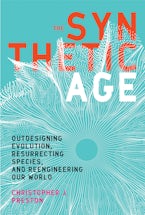Rich in lore on self-castrating beavers, muskoxen rebranded as “polar sheep,” and the tragic adventures of Bruno the Bear, Recovering Lost Species in the Modern Age delights in revealing the centrality of emotion in conservation. Rewilding and restoration, Jørgensen argues, are as much projects of collective guilt, ebullient hope, grief, and longing as they are of ecology and biology. Ultimately, saving species is a labor of love.
Emma Marris, author of Rambunctious Garden: Saving Nature in a Post-Wild World
Dolly Jørgensen explores vividly why and how we care about nature: why we long for lost species and grieve their passing, and how caring is part of our identity, our belonging in the world.
Libby Robin, Emeritus Professor, Fenner School of Environment and Society, Australian National University; Fellow, Australian Academy of Humanities
Through Martha the last passenger pigeon, Bruno the Bear, and the beaver's and muskox's return to Scandinavia, Jørgensen elegantly explores the complex emotional underpinnings of de-extinction and reintroduction. Foregrounding feelings of guilt, grief, longing, and hope, this book stands out in the crowd of writings on extinction, restoration, and rewilding.
Peter Coates, Professor of American and Environmental History, University of Bristol, UK
Exploring guilt, hope, and grief as emotional responses to the perception of species loss, Dolly Jørgensen's path-breaking book helps us reconsider how the nostalgic longing for lost animals drives ecological restoration practices.
Alexa Weik von Mossner, University of Klagenfurt; author of Affective Ecologies: Empathy, Emotion and Environmental Narrative



